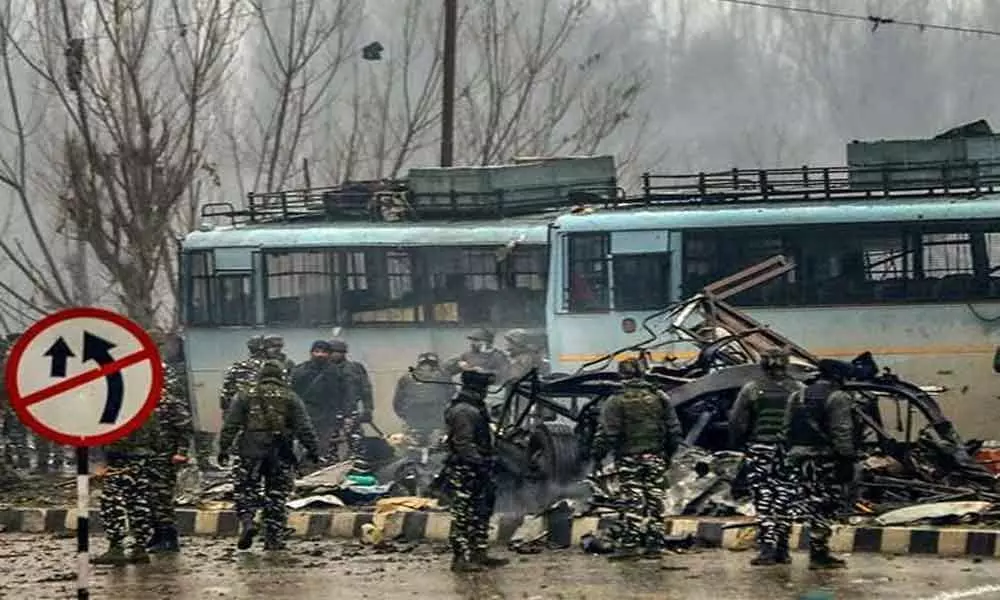A year of Pulwama terror attack: What happened and how India responded

Around 40 CRPF personnel were killed when their convoy was targeted by the suicide bomber of Pakistan-backed Jaish-e-Mohammad in J&K's Pulwama district on this day last year.
It was around 3:00 pm on this day, last year, when a Jaish-e-Mohammad (JeM) terrorist rammed a vehicle carrying explosives into the Central Reserve Police Force (CPRF) convoy on Srinagar-Jammu national highway.
Around 40 CRPF personnel were killed when their convoy was targeted by the suicide bomber of Pakistan-backed Jaish-e-Mohammad in Pulwama district.
Tensions flared up between India and Pakistan after the convoy of 78 buses, in which around 2500 CRPF personnel were travelling from Jammu to Srinagar, came under attack.
Nationwide protests erupted against the dastardly terror attack even as the country bid goodbye to its bravehearts. Leaders across the party lines and civil society condemned the attack and called for an appropriate response.
"I feel the same fire in my heart that's raging inside you," Prime Minister Narendra Modi would declare on February 17, days after the attack took place.
A day before, he had said that "all tears will be avenged" and the armed forces have been given "full freedom to decide the place, time, intensity and nature of the retaliation against the enemy".
United Nations and several countries from across the globe condemned the Pulwama terror attack and extended their support to India in the fight against terrorism.
China, the "all-weather friend" of Pakistan also backed the United Nations Security Council (UNSC) resolution on the "heinous and cowardly" Pulwama terror attack that was unanimously adopted by permanent and non-permanent member countries of the global body.
Following the dastardly attack, India had launched extensive diplomatic efforts to get JeM chief Masood Azhar designated as a global terrorist, which finally became a reality on May 1 when China lifted its technical hold on a proposal introduced by the US, the UK, and France in the 1267 Committee of the UN Security Council.
Around 12 days after the terror attack, in the wee hours of February 26, Indian Air Force jets bombed the JeM camp in Balakot, in Pakistan's Khyber Pakhtunkhwa.
"In an intelligence-led operation in the early hours of today(Feb 26), India struck the biggest training camp of JeM in Balakot. In this operation, a very large number of JeM terrorists, trainers, senior commanders and groups of jihadis who were being trained for fidayeen action were eliminated. This facility at Balakot was headed by Maulana Yousuf Azhar (alias Ustad Ghouri), the brother-in-law of Masood Azhar, Chief of JeM," the then Foreign Secretary would say in a press conference later in the day.
A day later on February 27, IAF foiled an attempt by PAF to strike at military installations in Jammu and Kashmir. In the aerial skirmish, Wing Commander Abhinandan Varthaman piloting a MiG-21 Bison aircraft shot down a much-advanced F-16 of PAF.
However, his aircraft was also hit and upon ejection, his parachute landed in PoK, where he was taken captive by Pakistani Army.
Under international pressure, Pakistan released the IAF pilot two days later, who returned to his country to a hero's welcome.

